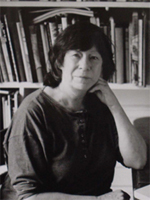Uses and Gratification - assumes an active audience, the audience chooses how and when they consume thier choosen media text. Denis McQuail suggests a detailed breakdown of audiences motivation to watch media texts...for information, learning, personal identity, integration and social interaction and final for entertainment.
Effects Theory - A passive audience, ideologies and values are easily injected into the audience (hypodermic needle). The Frankfurt School saw the rise of 'culture industry' the cause of increased standardization in society.
Reception Theory - is how a media text is read, the audience is both passive (if they accept a preferred reading) and active; they get to choose which text to consume.
David Morley sees the media as a routine of people’s lives and that audience's read texts in different ways. The reading of a text can often depend upon expectations and even the environment the audience sees the text in.

